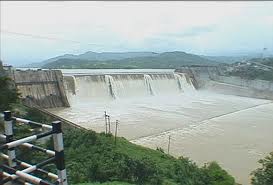Drinking and other Domestic Uses
Surveillance of drinking water quality - safe water Initiative - A presentation
Posted on 07 Jan, 2012 10:28 AMThis presentation by Dr.Nanoti at the 'International Conference on Health and Environment' organised by Centre for Science and Environment explains the method and importance of regular monitoring of drinking water quality in urban areas.
The presentation begins with the argument that managers of urban water supply systems stand to benefit from the fresh perspective offered by an external assessor.
Norms and standards of municipal basic services in India: Report by the National Institute of Urban Affairs
Posted on 07 Jan, 2012 10:04 AMStudies indicate that the levels of infrastructure services available in urban regions in India are improving, however their quality is still debatable. This paper uses secondary data available from various government report to review the norms and standards for the following basic services
- Water supply
- Sewereage
- Solid waste management
- Primary education
- Preventive health care
In addition resource gaps and measures to bridge these gaps are also examined.
Sustainable groundwater management – Report of the Working Group of the Planning Commission for the 12th Five Year Plan
Posted on 06 Jan, 2012 04:27 PMThe existing methodology of groundwater resources assessment is appropriate and suitable for country-wide groundwater resources estimation, considering the present status of database available with the Central and State agencies.
15 tanks and 151 toilets built in 2011 to provide schools with water and sanitation': bRAINstorming
Posted on 30 Dec, 2011 02:34 PMArticle and Image Courtesy: International Rainwater Harvesting Alliance (IRHA)
The newsletter focuses on all activities concerning rainwater harvesting, the International Rainwater Harvesting Alliance (IRHA) and its partners. This issue summarizes work done during 2011.
First international advocacy planning meeting for water and sanitation activists'- 'WASH News and policy update
Posted on 30 Dec, 2011 12:31 PMContent courtesy: India WASH Forum
Alternative National Water Policy by Ramaswamy R Iyer - Comments by Rahul Banerjee
Posted on 28 Dec, 2011 02:24 PMGuest Post: Rahul Banerjee
Ramaswamy Iyer has made a commendable effort to draft a National Water Policy that tries to reform the current unsustainable approach to water resource management in this country (EPW Vol XLVI Nos 26&27 Supplement pp 201). Assuming that this draft is an invitation to a larger public debate on the issues involved I would like to make a few comments on it.
Life, livelihoods, ecosystems, culture: Entitlements and allocation of water for competing uses
Posted on 27 Dec, 2011 05:10 PM This report has been prepared by the members of the working group set up by the Forum for Policy Dialogue on Water Conflicts in India on the issue of “Entitlements and allocations for livelihoods and ecosystem needs". The introductory chapter sets out the context of the report. The immediate context is the work of the Forum over the last 4-5 years, and the learning that this particular issue leads to many water conflicts in India.
This report has been prepared by the members of the working group set up by the Forum for Policy Dialogue on Water Conflicts in India on the issue of “Entitlements and allocations for livelihoods and ecosystem needs". The introductory chapter sets out the context of the report. The immediate context is the work of the Forum over the last 4-5 years, and the learning that this particular issue leads to many water conflicts in India.
Agriculture, food security and nutrition in Vidarbha: Household level analysis – A special article in EPW
Posted on 27 Dec, 2011 09:43 AMUsing the data generated from a baseline survey on a sample of 6,990 households covering six districts, this paper attempts to assess the relationships between agriculture, food security and nutrition for children, adolescents and married women of reproductive age.
Confessions of an OD boy: The need to achieve a sustainable open defacation free intervention
Posted on 24 Dec, 2011 07:58 PMAuthor: Mohanasundar Radhakrishnan
Ajunhi kordech aad (The wells are still dry) - An article in marathi - Anubhav magazine
Posted on 03 Dec, 2011 11:53 AMA large part of the state of Maharashtra continues to face acute scarcity of water due to scanty rainfall, which has had a serious impact on the livelihoods of people who live in these areas. This article "Ajuni Kordech Aad" meaning "The wells are still dry" published in the magazine Anubhav highlights the extreme hardships, lack of employment opportunities, forced migration due to negative impact on agriculture and livestock, and poverty and deprivation that people living in these areas have to face due to this water scarcity.





